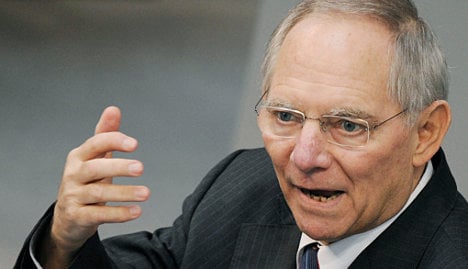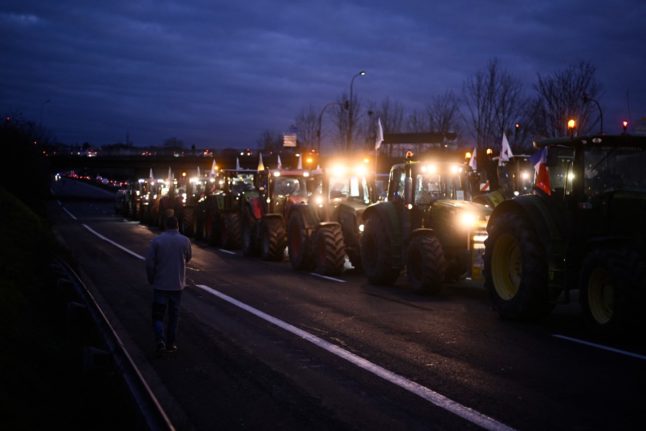“Hidden behind the comments from our French friends is praise,” Schäuble said in a debate in the German parliament.
“I think that in Europe we should all make an effort to boost competitiveness,” he said, while “those who are maybe a little weaker should make more of an effort – not the other way around.”
French Finance Minister Christine Lagarde said on Monday that Germany’s strong surplus, a result of Germany exporting more goods than it imports, was unsustainable for Germany’s partners in the eurozone.
“(Could) those with surpluses do a little something? It takes two to tango,” Lagarde told the Financial Times.
“Clearly Germany has done an awfully good job in the last 10 years or so, improving competitiveness, putting very high pressure on its labour costs,” she said.
“I’m not sure it is a sustainable model for the long term and for the whole of the group. Clearly we need better convergence.”
The European Union’s Competition Commissioner, Joaquin Almunia, said in Madrid this week that it was important to pay attention to trade imbalances “and also to countries that have surpluses.”
Germany, Europe’s biggest economy and the world’s number two exporter after China, has also come under attack from the United States in the past over its trade surplus. Critics say that large trade surpluses create imbalances in the global economy, and that Germany should do more to boost domestic demand for imports from other countries, for example through tax cuts.
But there is little room for tax cuts on a scale that would boost spending in a meaningful way, with Chancellor Angela Merkel’s coalition struggling with a record budget deficit as a result of stimulus programmes aimed at dragging Germany out of its worst recession since World War II.
The willingness of German trade unions to accept moderate wage increases in recent years has also allowed its exporters, many of them small or medium sized Mittelstand firms, to be more competitive than firms in other
countries.
Germans also save more than many fellow Europeans, further depressing domestic spending.
In a comment column in the Financial Times newspaper, a former director of the European Central Bank, Otmar Issing, also hit back at the tone of remarks by Lagarde and Almunia.
He retorted that pressure on Germany to allow wages to rise in order to help deficit countries was “so economically erroneous and politically dangerous that it would hardly deserve being taken seriously – were it not for the risk that it might actually prevail.”
Saying that the idea of European economic government had been revived, with the idea that surplus countries should “do more,” he said that the “utopian economics” being advanced were “simply wrong.”
Any attempt deliberately to reduce the competitiveness of the highly successful German export model looked like “a bad joke,” he said.



 Please whitelist us to continue reading.
Please whitelist us to continue reading.
Member comments